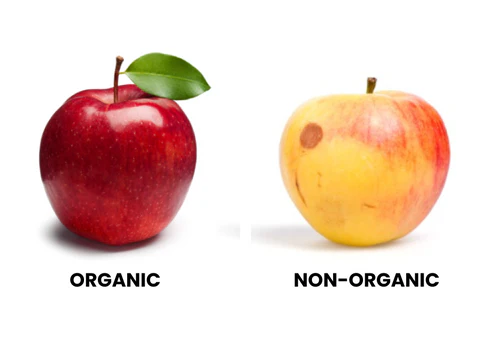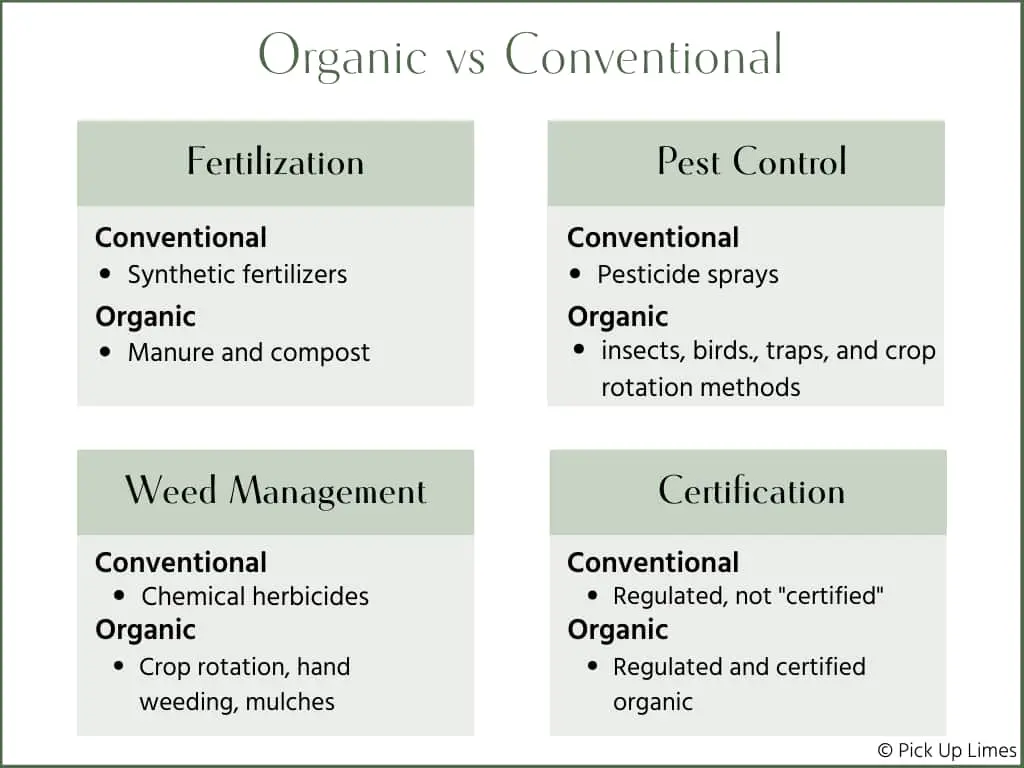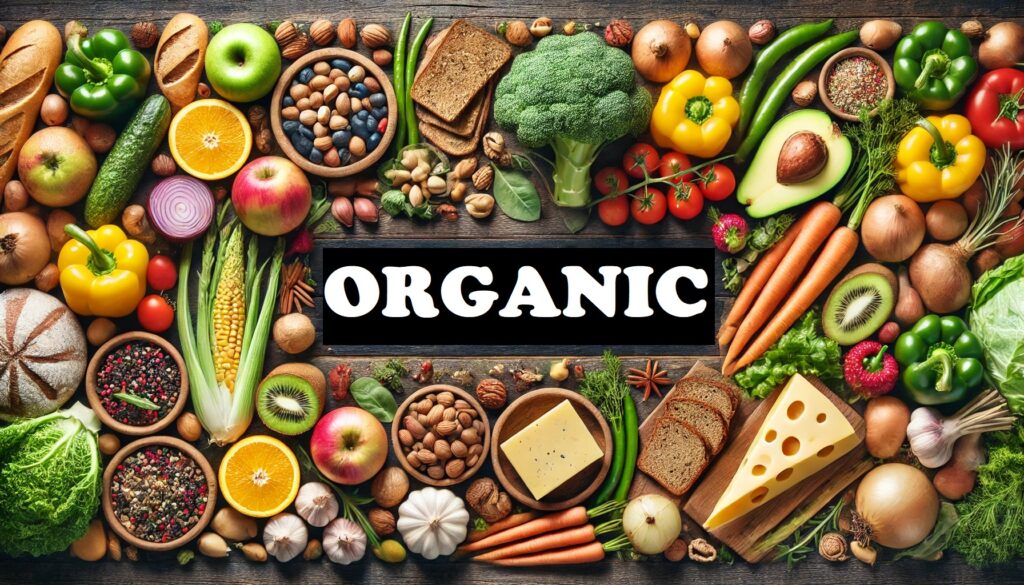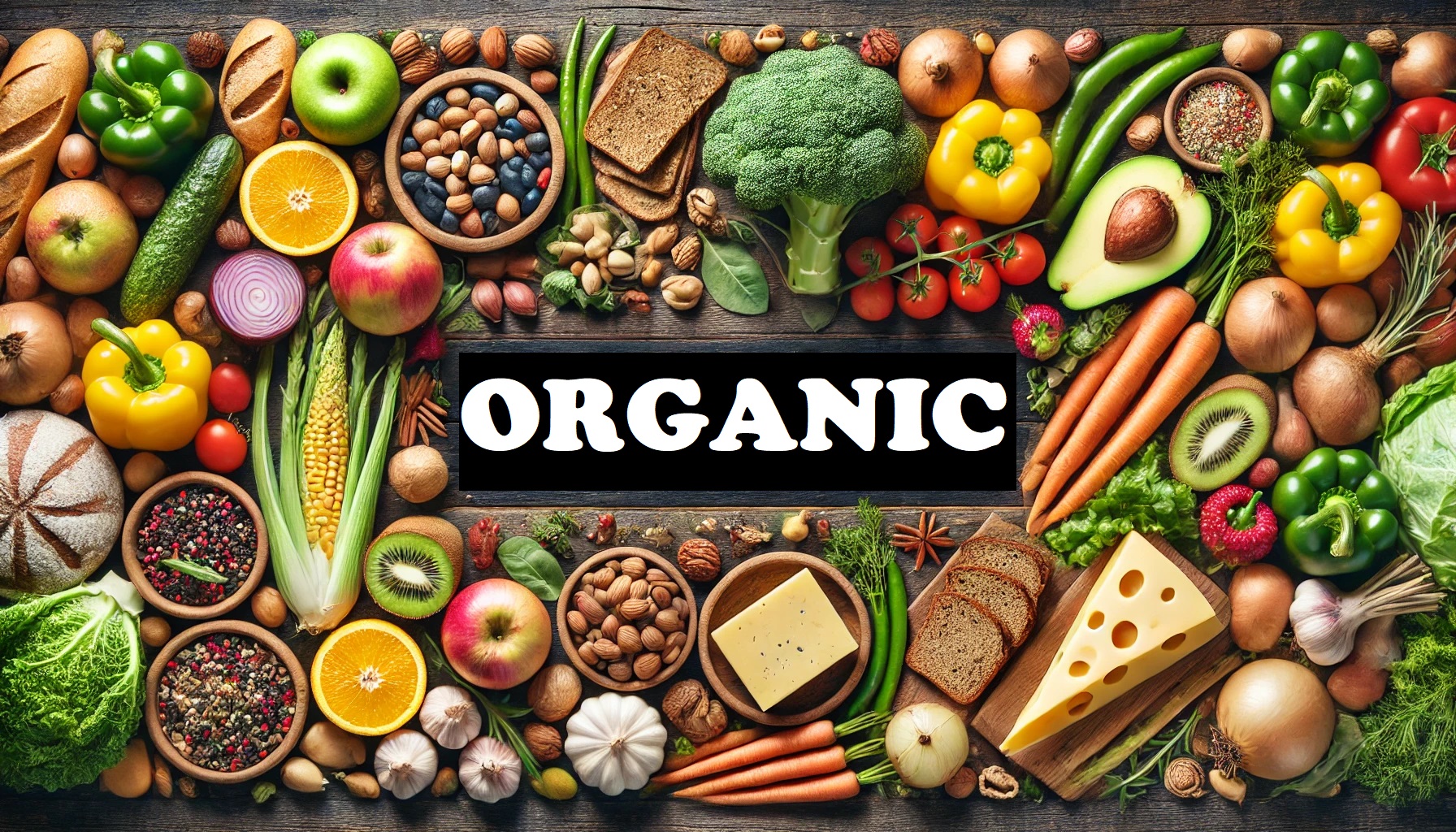In recent years, organic food has taken the American health scene by storm. From grocery store aisles to farmer’s markets, the “organic” label is everywhere. As consumers become more health-conscious and environmentally aware, organic products have gained a reputation for being healthier, more ethical, and better for the planet. But is organic food really worth the hype? Let’s explore the ins and outs of America’s health food craze and whether organic food truly offers better benefits.
What Does “Organic” Actually Mean?
In the U.S., organic food must meet strict guidelines set by the USDA. For crops to be considered organic, they must be grown without synthetic pesticides, genetically modified organisms (GMOs), or chemical fertilizers. Organic meat and dairy products must come from animals that are raised in humane conditions, fed organic feed, and not treated with antibiotics or hormones.

These strict standards aim to promote sustainability and animal welfare while reducing exposure to harmful chemicals. But does this automatically mean that organic food is healthier or better for the environment?
The Health Benefits: Organic vs. Conventional
Many Americans buy organic food with the belief that it’s healthier. Studies have shown that organic produce can have slightly higher levels of certain nutrients, like antioxidants, which may offer benefits for overall health. Organic foods also tend to have lower pesticide residues than conventionally grown alternatives, which could be important for consumers who want to reduce their exposure to synthetic chemicals.

However, the nutritional differences between organic and non-organic foods are not as substantial as one might think. The American Academy of Pediatrics and other health organizations state that while organic food reduces pesticide exposure, it doesn’t necessarily offer significant health advantages over conventional foods in terms of nutrition.
Is Organic Food Safer?
One of the biggest selling points of organic food is the perception that it’s safer due to lower pesticide use. While it’s true that organic farming restricts the use of synthetic pesticides, it doesn’t mean organic products are entirely pesticide-free. Organic farmers can still use natural pesticides, which may not always be less toxic than their synthetic counterparts.

Nonetheless, studies suggest that the pesticide levels in both organic and conventional foods are generally low and fall within safe limits set by regulatory bodies. The Environmental Protection Agency (EPA) ensures that the pesticide residues found in food are safe for human consumption, regardless of whether the food is organic or conventional.
The Environmental Impact
Another key reason for the organic craze is its environmental promise. Organic farming is often praised for being better for the planet because it avoids synthetic chemicals, promotes biodiversity, and supports soil health. Organic farming practices, such as crop rotation and composting, can also reduce soil erosion and improve water retention.

However, organic farming is not without its challenges. Organic farms often require more land to produce the same amount of food as conventional farms. This can result in higher land use, which may contribute to deforestation and habitat loss if demand continues to rise. Additionally, organic farms can have lower yields, meaning they produce less food per acre, which may not be ideal for feeding a growing global population.
The Cost of Going Organic
One of the biggest barriers to adopting an organic lifestyle is the cost. Organic food often comes with a higher price tag due to more labor-intensive farming methods and lower yields. For many Americans, the premium price is worth it for the perceived health and environmental benefits. However, for others, the cost can make it difficult to justify switching to organic products.
There’s also the issue of accessibility. Organic food tends to be more available in affluent areas, which means that many lower-income Americans don’t have the same access to these products, perpetuating health disparities in the food system.
Is Organic Really Better?
The answer depends on what aspect you’re considering. If your primary concern is reducing exposure to synthetic pesticides, organic might be a better option. If you’re looking for significant nutritional differences, the evidence isn’t strong enough to suggest that organic is vastly superior. And if you’re focused on the environmental impact, organic farming does offer some benefits, though it’s not a perfect solution to sustainable agriculture.
Ultimately, the decision to buy organic comes down to personal values and priorities. For some, the peace of mind that comes from eating food grown without synthetic chemicals is worth the extra cost. For others, buying local, seasonal produce—whether organic or not—might be a more accessible way to eat healthily and sustainably.
Conclusion: The Organic Craze Continues
As the organic food movement continues to grow in the U.S., it’s important to recognize both its benefits and limitations. While organic food can reduce pesticide exposure and support more sustainable farming practices, it’s not the only path to healthier, more ethical eating. Conventional foods, when chosen mindfully, can be just as nutritious and safe. The key is to focus on a balanced, whole-food diet, whether organic or not, that supports both personal health and the environment.
Organic or conventional, what’s on your plate should ultimately reflect what aligns with your values and lifestyle. So, next time you’re at the grocery store, consider not just the label, but the impact your choices have on your health, your community, and the planet.

